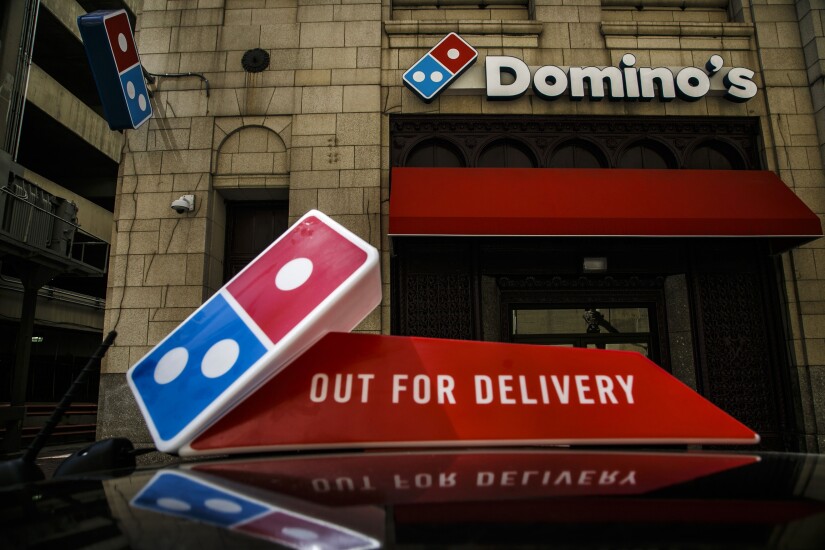
Franchise fee securitization
Known as “whole business securitizations,” these transactions are still relatively rare, so it’s unusual to see so many in such a short period. They’re typically used to refinance the debt of franchises acquired by private equity firms in leveraged buyouts. Moving operating assets to a bankruptcy remote affiliate separates them from the credit risk of the heavily indebted parent company; most bonds are rated triple-B, at the cusp of investment grade.
Some of this year’s issuers, like Domino’s, were taken private years ago and are refinancing whole business deals that have been paid down. But several, including Five Guys and Coinstar, are first-time issuers. All are taking advantage of a strong market for structured finance. Issuance of all kinds of U.S. asset-backeds reached $193 billion in the first five months of the year, up 40% over the same period of 2016, according to S&P Global.

Restaurant makeover

Domino's raising more dough

Funding expansion

Shopping mall snacks

No chump change






